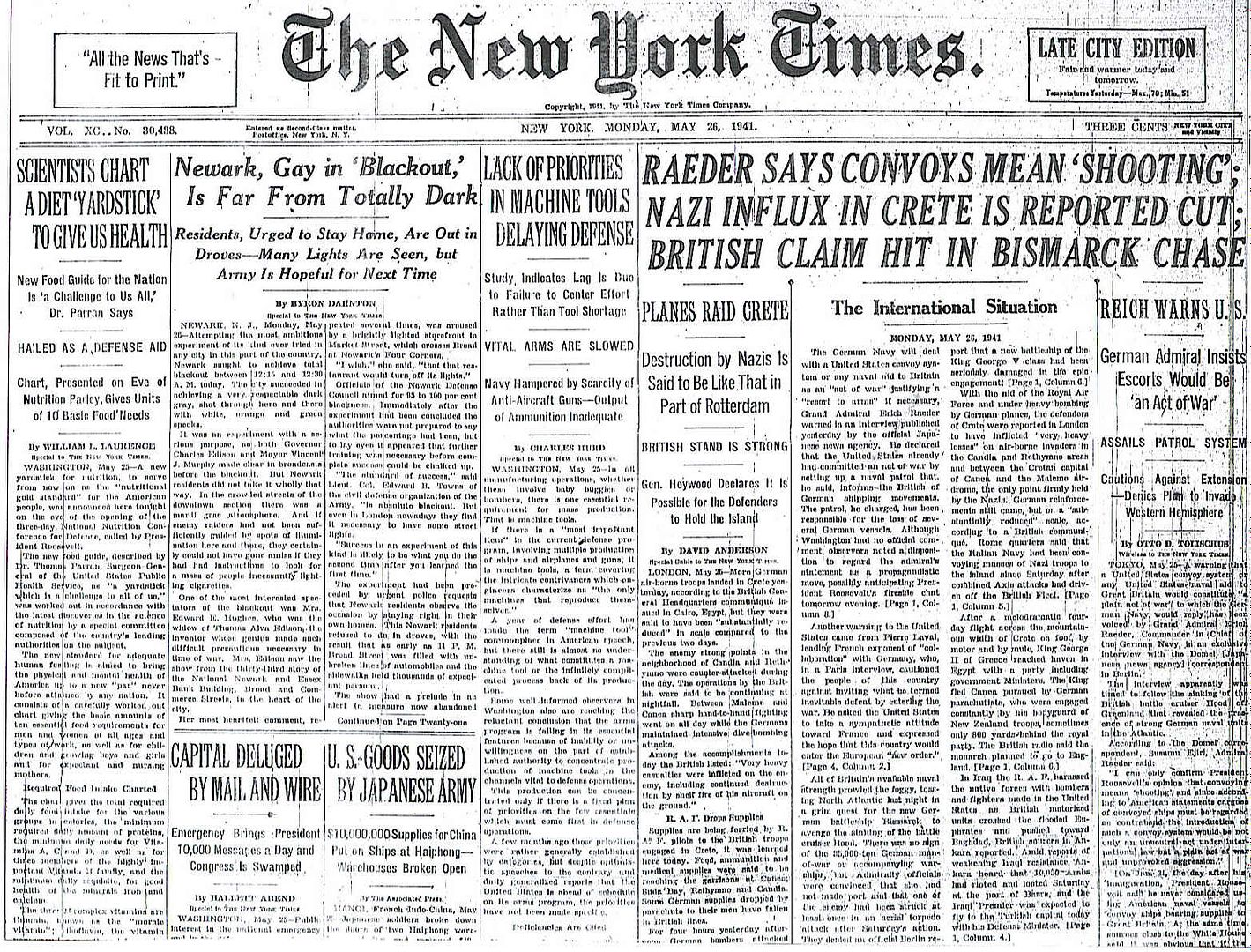
Posted on 05/26/2011 5:25:29 AM PDT by Homer_J_Simpson

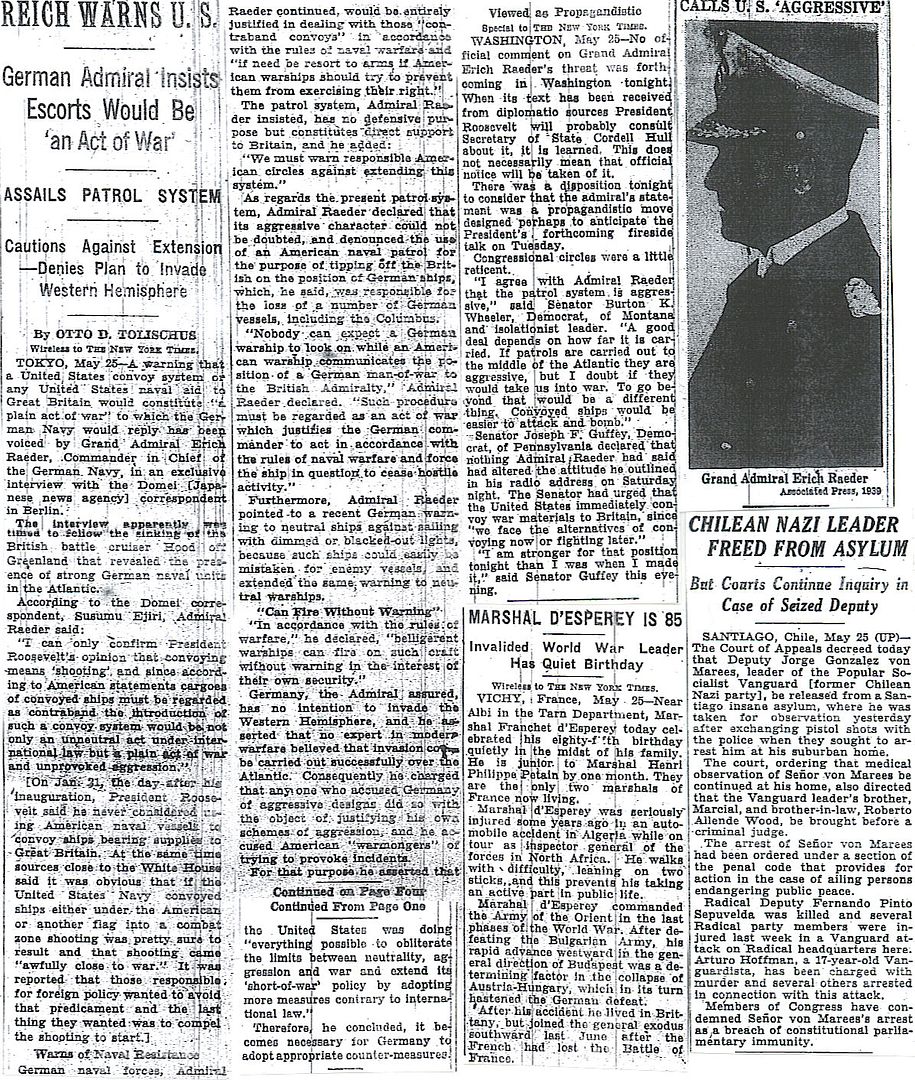
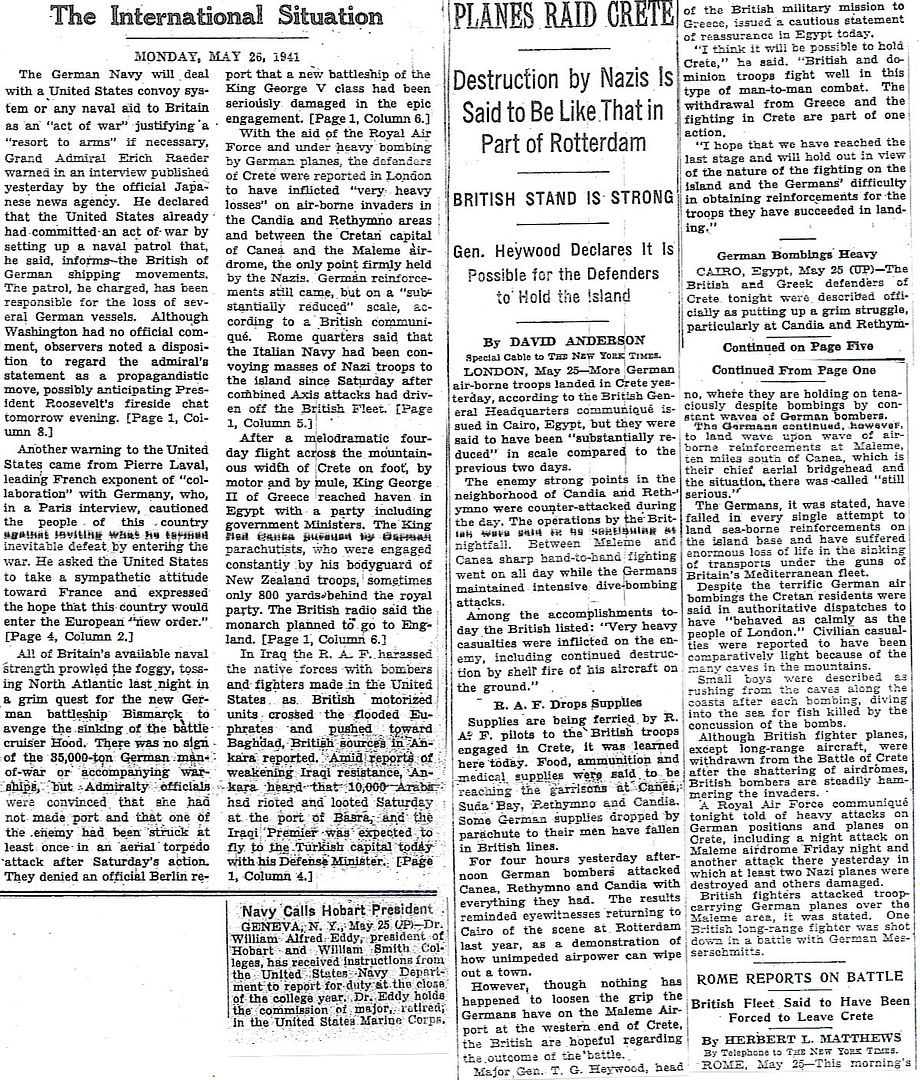
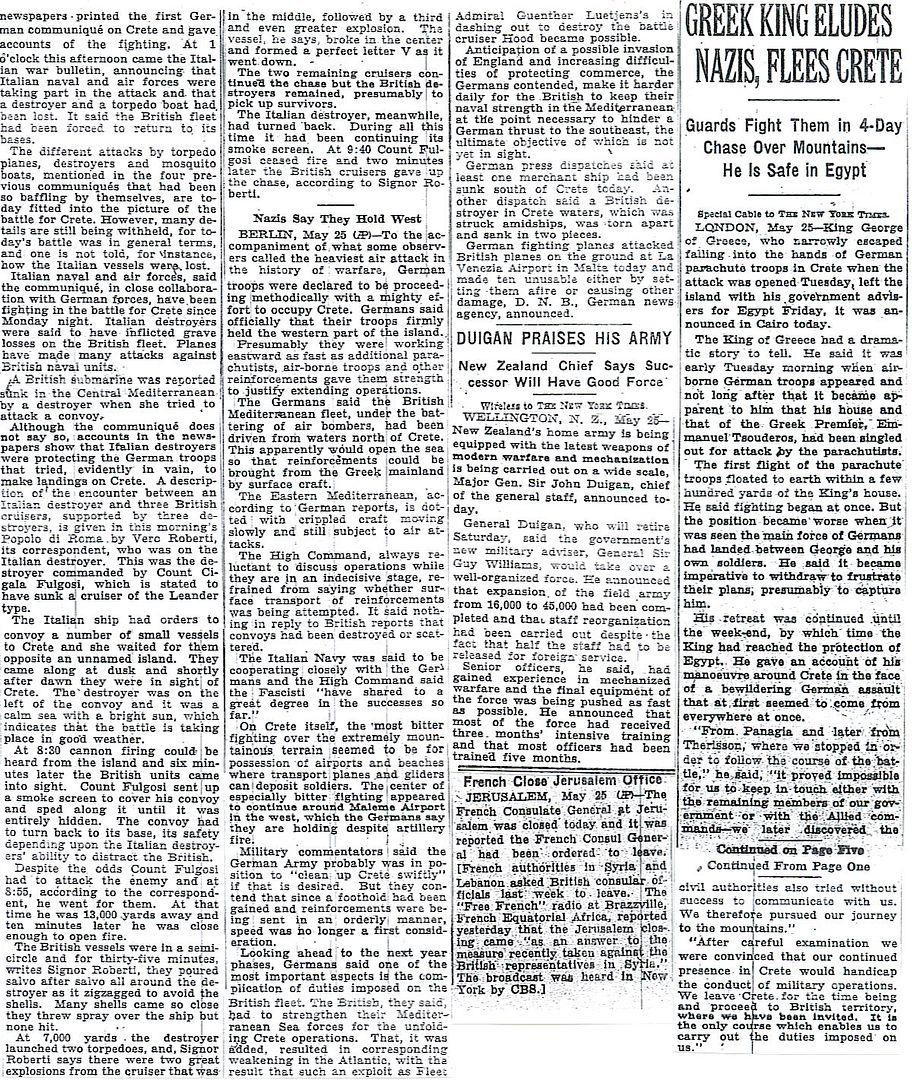
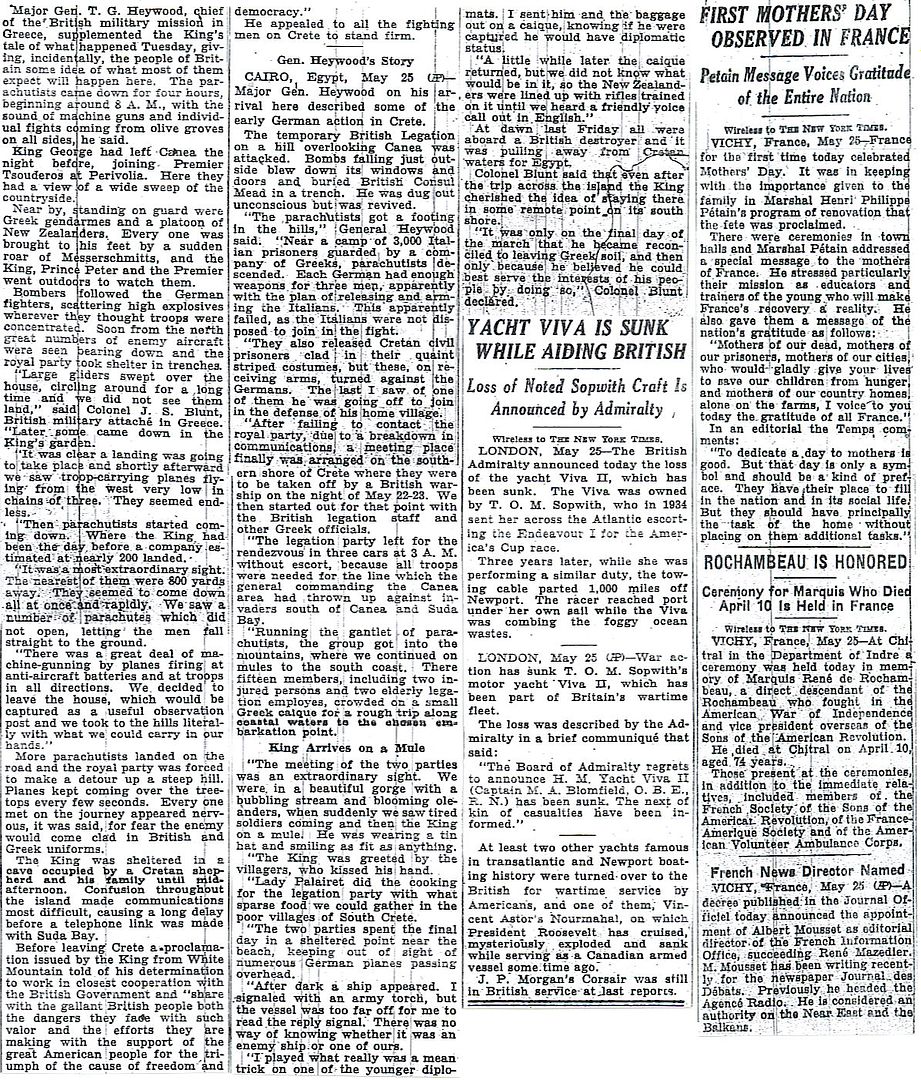
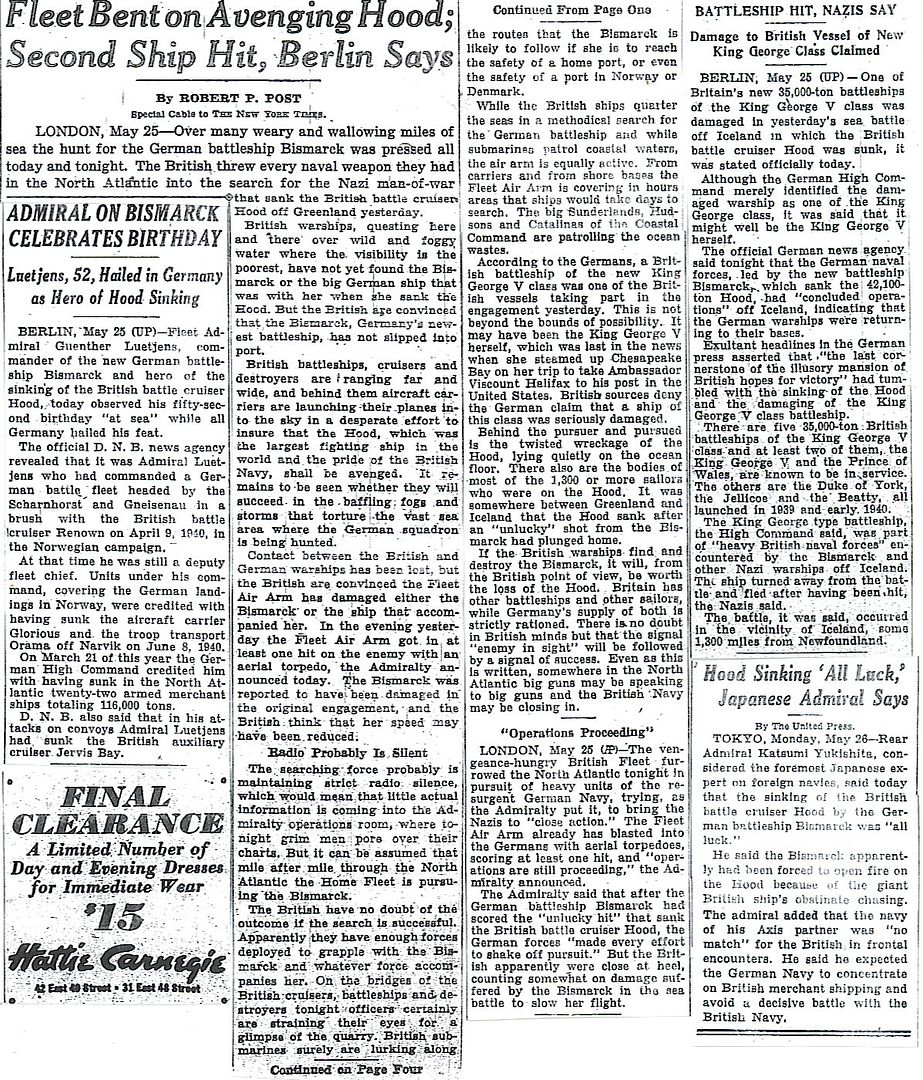
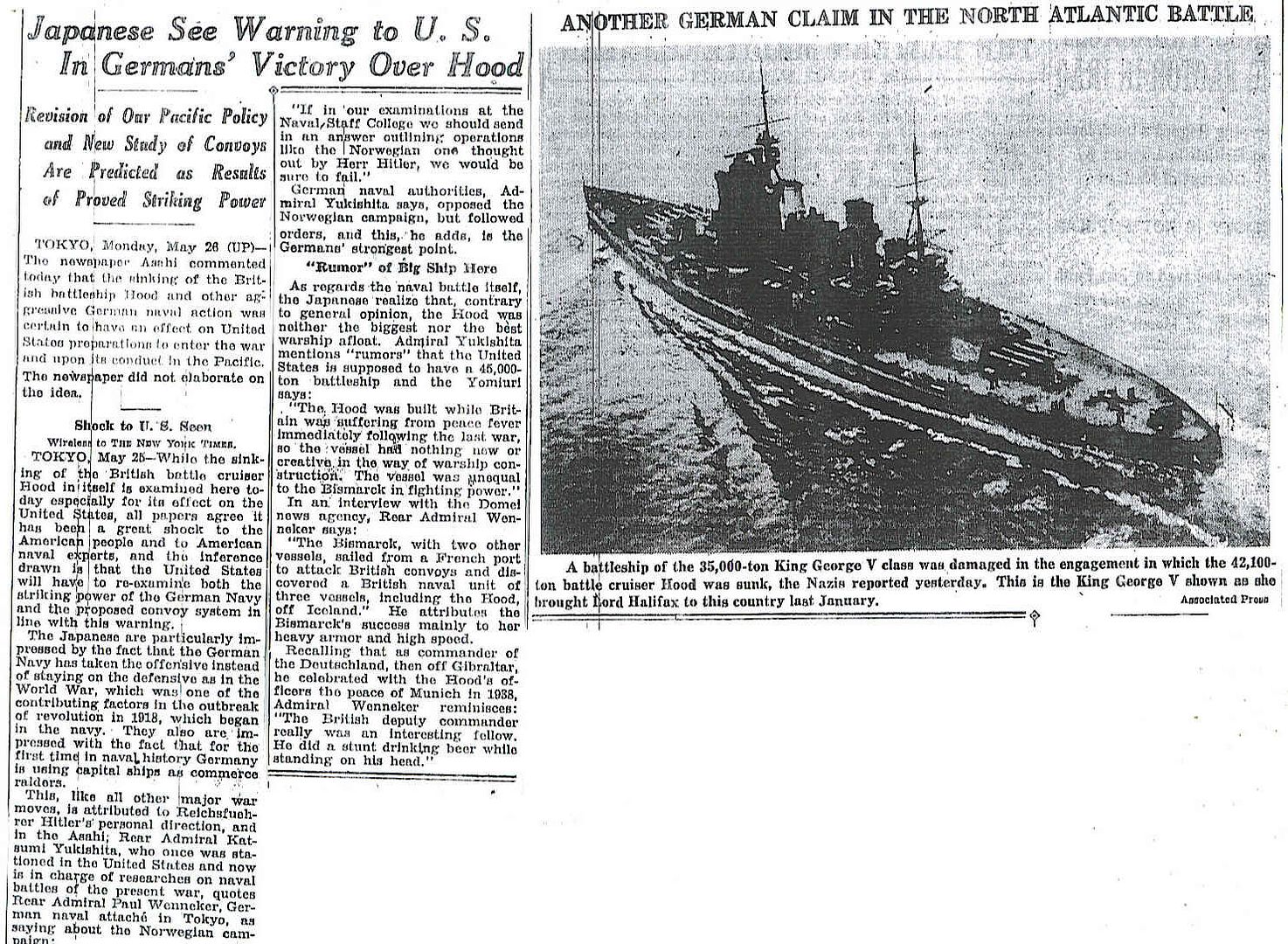
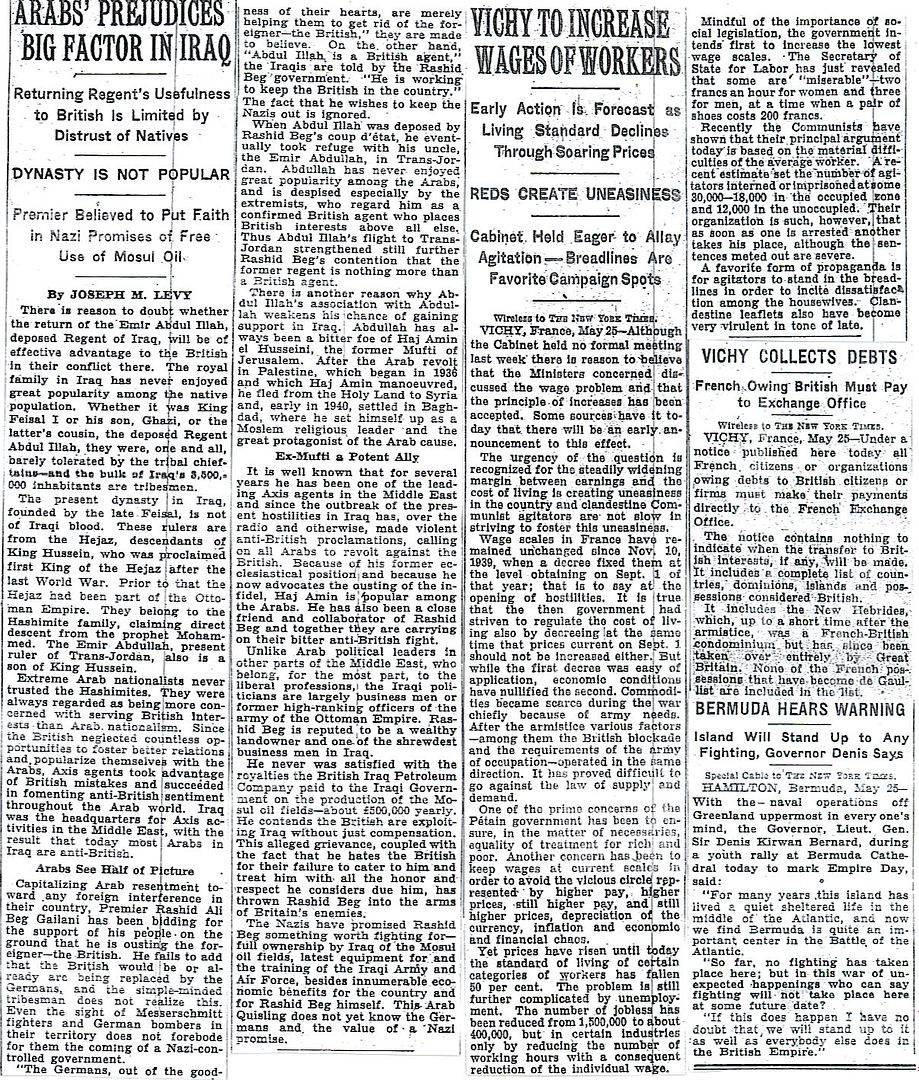
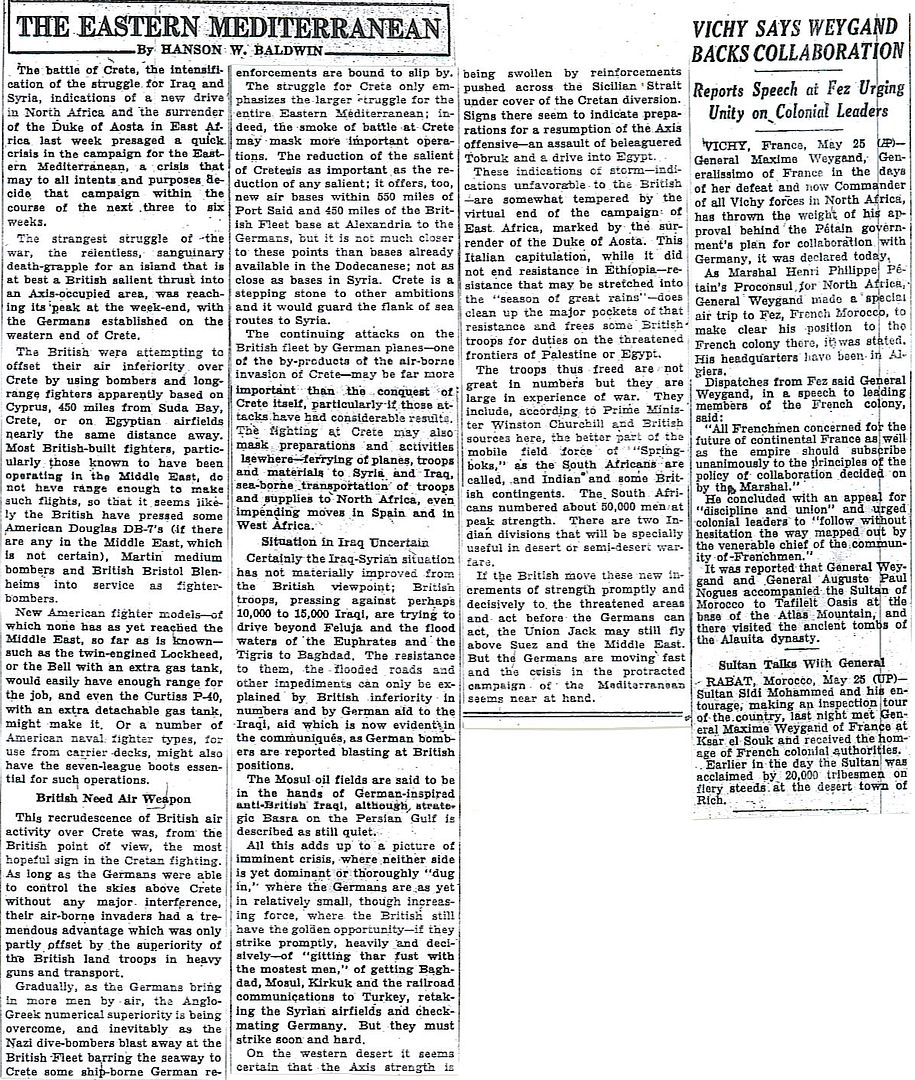
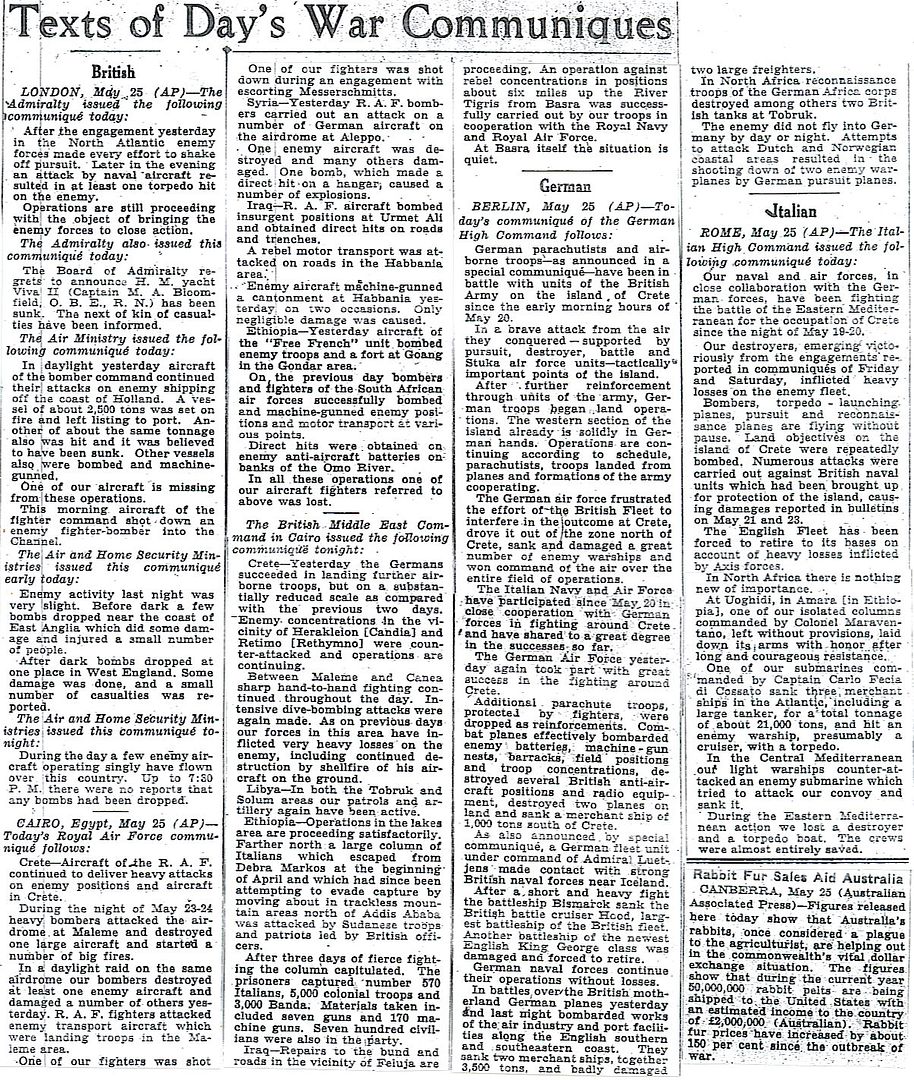
From your post:
“U.S.A.: America’s first experimental blackout takes place at Newark, New Jersey.”
Article title in this thread’s newspaper image:
“Newark, Gay in ‘Blackout’, is far from totally dark.”
Interesting that Churchill didn’t seem to write much about the Bismarck chase or the Hood sinking. It’s been so long since I read those books, I can’t remember.
There is probably a lot more narrative in the chapter that included his maps. At this point I am limiting the excerpts mostly to his dated memos. He made it most convenient to do that in a time-line format such as we are constructing here, but I am resisting the temptation to let these threads become “The War According to Churchill.” Maybe I should make an exception in this special case.
Seems I recall he had a separate chapter about the Bismarck Episode. Is that correct?
I’m just spitballing here, but I wonder if he was waiting to see how the thing would turn out before he committed anything in writing in his diaries?
If the Bismarck escaped, obviously it would be a major PR disaster, with possible political fallout.
I may be completely off base, but as I get older, it seems every move by anyone in government had a political calculation, even in the depths of WW2.
Yes. Chapter 17 of “The Grand Alliance.”
"As Director of Naval Intelligence from June 1939 to December 1940, {the newly ordained Commander Battleships of the Pacific Fleet, Rear Admiral Walter Stratton} Anderson had been at the center of policy making.
He had direct access to Roosevelt in the White House and met weekly with FBI Director J. Edgar Hoover.
Most important, he knew of the American success in breaking the Japanese military and diplomatic codes.
When he arrived on the quarter-deck of Kimmel’s flagship Anderson had one moral duty: to inform his commander-in-chief of the cryptographic triumphs.
He failed to do so, and deliberately excluded Kimmel from the decryption success.'I can’t understand, may never understand why I was deprived of the information available in Washington,' a bewildered Kimmel wrote after the war.
"Had he been briefed, Kimmel could have requested that Purple decryptions be sent to him from either Washington or Corregidor.
But without the machine, he did not have the capability to decode them."Ironically, the Army’s monitor station on Hawaii, Station FIVE, was a principal interceptor of Purple code messages; the intercepts were forwarded immediately by radio to Washington, where they were decrypted on the Station US machine for the White House.
Decryption was speedy.
Most of Station FIVE’s intercepts of Purple encoded messages were decoded on the Station US Purple machine and translated within a day’s time, according to the White House route logs kept by Arthur McCollum."Incredibly, copies were not sent to Hawaii.
Like Admiral Husband Kimmel, Lieutenant General Walter Short, Hawaii’s Army commander, was not told of the secrets of Purple, even though the messages were being intercepted just steps from his command post at Fort Shafter."Both Admiral Anderson and Commander Vincent R. Murphy, Kimmel’s assistant war plans officer, knew of McCollum’s proposal to keep the fleet in harm’s way.
Either or both should have told Kimmel everything they knew about America’s ability to learn Japan’s strategic and tactical intentions from the intercepts.
By mid-February, soon after taking command of the Pacific Fleet, Kimmel sensed his exclusion from the intelligence loop.
On February 18 he asked Admiral Stark to fix responsibility for disseminating reports of a'secret nature so there will be no misunderstanding.'
"Kimmel received Stark’s answer on March 22:'Naval Intelligence is fully aware of its responsibility in keeping you adequately informed.'
"Determined to plug into the loop, Kimmel tried again.
On May 26 he requested the establishment of what he called a “cardinal principle”:“Inform the Commander-in-Chief of the Pacific Fleet immediately of all important developments as they occur by the quickest means available.”
"His requests were ignored.
What information he got from Washington, for almost the entire time prior to the attack, did not provide him with a full understanding of Japan’s intentions."By late July 1941, he had been cut off completely from the communications intelligence generated in Washington."
Stinnett, Robert (1999). Day of Deceit, Chapter 3
Neither Admiral Anderson nor Commander Murphy, in Hawaii, nor Admiral Stark in Washington, are listed in Major Clausen's rogue's gallery of "who's to blame" for December 7, 1941.
Memo to Sec/Nav. Frank Knox:
I wouldn’t be calling a 50,000 ton warship with a main armamment of eight 15” guns,5.9” guns for secondary armament, over a foot of armor, and a speed in excess of 30 knots, a “pocket battleship”.
And, Frank, you run the U.S Navy?
Pages 28 & 29.
And don’t miss that politically correct ad on 49.
Finally, I didn’t know that self sealing envelopes predated WWII.
Disclaimer: Opinions posted on Free Republic are those of the individual posters and do not necessarily represent the opinion of Free Republic or its management. All materials posted herein are protected by copyright law and the exemption for fair use of copyrighted works.